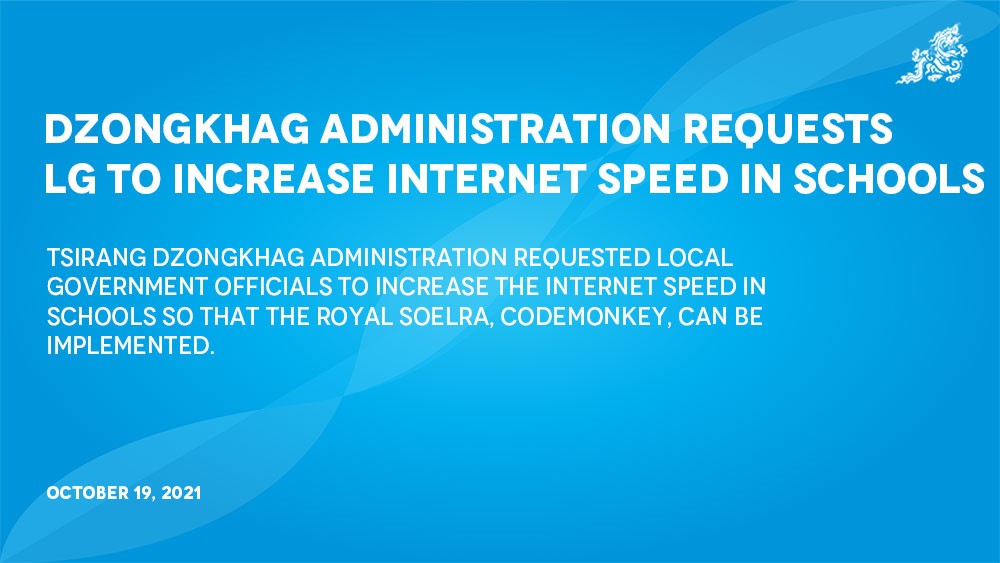Choki Wangmo | Tsirang
Tsirang dzongkhag administration requested local government officials to increase the internet speed in schools so that the Royal Soelra, CodeMonkey, can be implemented.
The request was made in the recent dzongkhag tshogdu held on October 14.
The dzongkhag’s senior information and communication technologies (ICT) officer, Tshering Dorji, said that with the current internet speed of one megabit per second (mbps) in schools, it is difficult to start the CodeMonkey programme.
His Majesty The King granted the Royal Soelra to the children of Bhutan in July this year so that students can learn coding.
The Ministry of Education (MoE) has released about 100,000 CodeMonkey codes for students in the dzongkhags as of last month.
However, Tshering Dorji said the programme cannot be implemented in most schools in the dzongkhag.
“I am requesting that local government (LG) members and the gewog administration increase the internet speed in the schools, since the gewog administration has the budget to do so,” he said. “The dzongkhag does not have the budget for it.”
According to the ICT officer, if the internet speed is increased to 3mbps, which might cost around Nu 4,000 a month, the programme can be successfully implemented and students will benefit. “From November to June, the gewog administrations have to pay Nu 32,400.”
He explained that one mbps, which costs Nu 1,350 per month, is sufficient only to send and receive emails.
The dzongkhag’s chief education officer, Rinchen Gyeltshen, said CodeMonkey is a gift from the throne that offers paid coding lessons through games. “The education sector tried to secure funds to increase the internet speed but it is difficult.’
He said it would be helpful if the gewog administration shares its WiFi facilities with schools located near the administration.
An official from the Department of Information Technology and Telecom said in an earlier interview that through the Digital Drukyul Flagship programme, the department is building fibre optics infrastructure to identified schools and other government offices to facilitate high-speed internet connectivity.
The target, he said, is to construct about 2,500kms of fibre optic links by the end of the year. “As of now, about 500km have been completed.”
Meanwhile, it was learnt that besides the problem of slow internet speed, many schools lack computers, ICT teachers, and ICT laboratories.


